
image from wholefoodsmagazine.com
Today people are spending thousands of dollars on supplements and wellness. But how do you know that you are spending your dollars on the right kind of supplements for you?
A short visit to your local health food stores or pharmacies reveals that today shelves are filled with thousands of health supplements. It is also that not all supplements are created equal.
Most people who read about health and nutrition are at least somewhat familiar with the idea that whole foods are better for you than refined foods. This fact has never really been argued. Most will agree that raw honey is better for you than white sugar or that brown rice is better for you than white rice. Why should it be any different for vitamins?
Avoid Refined Food and Refined Supplements
Similar to refined foods, refined vitamins are robbed of all of the extra accessory nutrients that come naturally as well. In turn, like refined foods, they can create numerous problems and imbalances in your body if taken at high levels for long periods of time.
They may also behave more like drugs in our body, forcing themselves down one pathway or another. At the very least, they won’t help you as much as high quality food and food-based supplements.
Take the examples of vitamin C (ascorbic acid) or vitamin E (delta tocopherol) you can find on most health food store shelves today. They are isolated or synthetically created from parts of an entire complex.
Nature does not produce any nutrient in an isolated form – they are unnatural. Taking these, especially at the ultra-high doses found in formulas today, is more like taking a drug. By the same token, food-based supplements are never treated like this by your body.
For example, your urine will never turn florescent yellow, no matter how much meat (a good natural source of B vitamins) you eat. This condition happens only with foreign substances in your body. The nutrients in natural foods are blended together in a specific way and work best in that format.
Embrace Wholesome Food Supplement
Whole food supplements or food-based supplements are what their name suggests – supplements made from concentrated whole foods. The vitamins found within these supplements are not isolated or synthetically created.
They are highly complex structures that combine a variety of enzymes, coenzymes, antioxidants, trace elements, activators and many other unknown or undiscovered factors all working together synergistically, to enable this vitamin complex to do its job in your body.
Nutrients from within this complex cannot be isolated from the whole, created synthetically and then be expected to do the same job in the body as the whole natural complex is designed to do.
Here is a simple guide for you to know whether or not a supplement you’re looking at is a good choice:
- It is as close as possible to its natural form.
- The utmost care has been taken in its production – from growing its ingredients, to manufacturing, testing for potency and quality control. Good Manufacturing Practise (GMP) certification.
- It works! Choose from companies with good track record and clinical results.




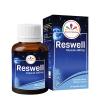

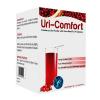
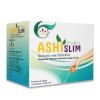
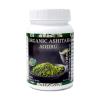
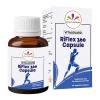
Facebook Comments